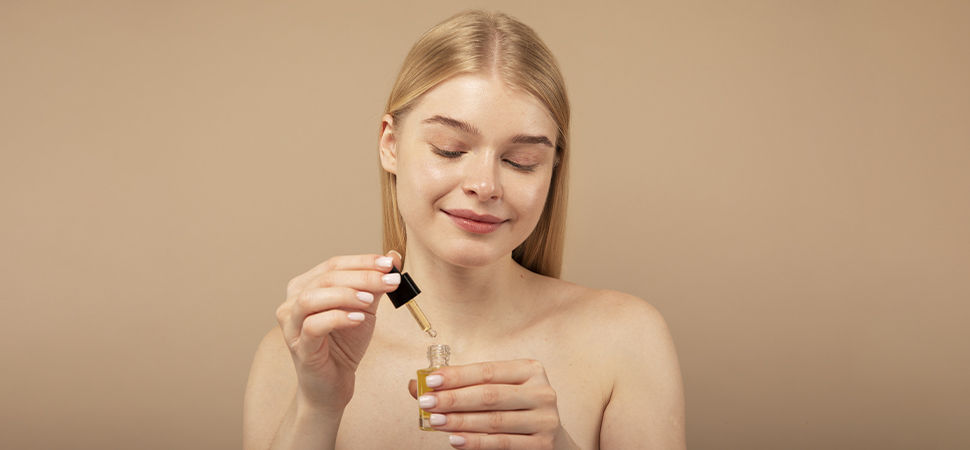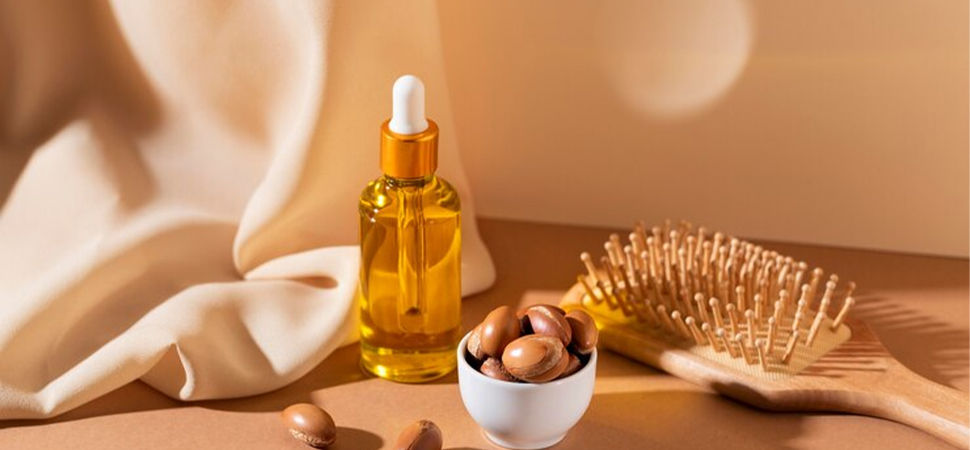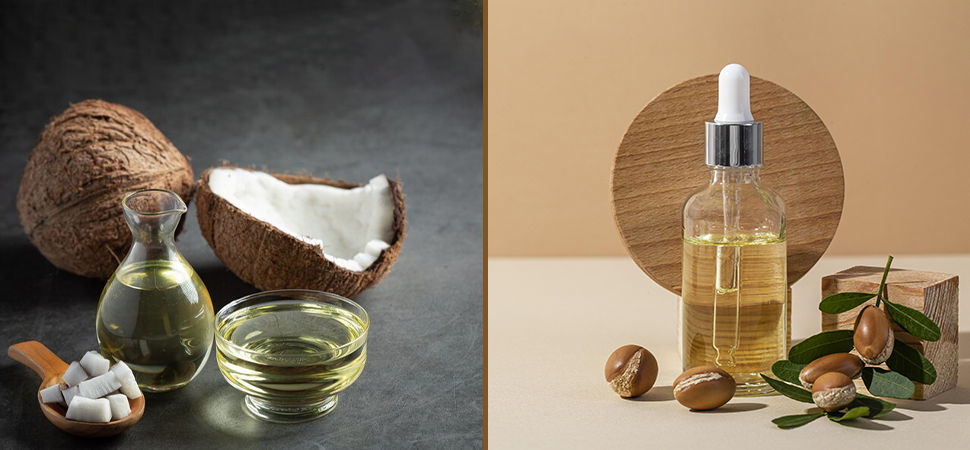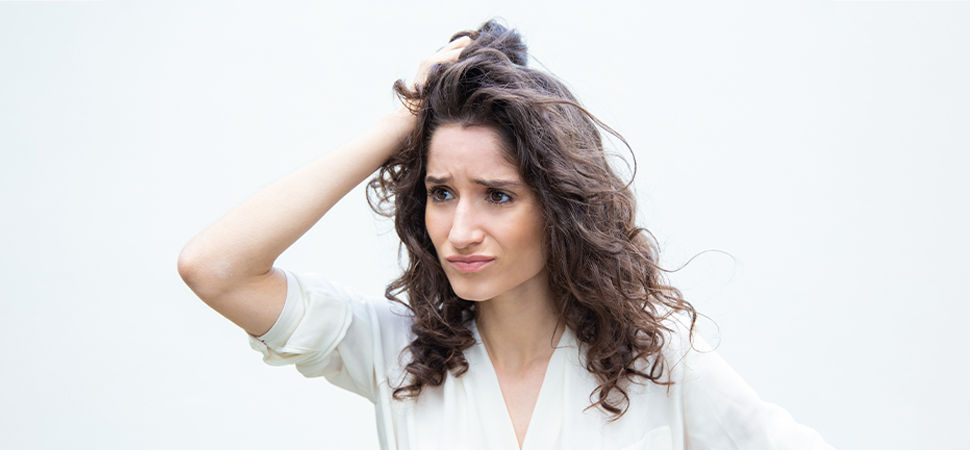
Dermatologists often refer to argan oil as ‘Liquid Gold’ for its unmatched hair restoration properties. The plant oil, derived from the kernels of the argan tree, is native to Morocco and southwestern Algeria, where people revere the tree, calling it ‘The Tree of Life.’
Argan oil shines amongst other hair oils. It is rich in many antioxidants, Vitamin E, and essential fatty acids that enhance your hair’s texture and leave a silky, rejuvenating finish without any side effects. Most cosmetic companies and stylists use beauty products where argan oil is the prime ingredient. But what sets argan oil apart from your regular hair oils? Let us break down the properties of argan oil and provide a detailed overview of the hero ingredient everyone is obsessed with.
Applications of Argan Oil

Argan oil is incorporated into different medicinal and cosmetic products in many ways. It can be in the form of:
- Gels
- Face creams and serums
- Soaps
- Shampoos and conditioners
Argan oil works as a fast-absorbing moisturizer that can be used in skin care as a hydrating serum to reduce dryness, fine lines, and wrinkles, balancing the oil production. When it comes to hair, it can be used as a hydrating agent in a conditioner or a hair mask to reduce split ends and damage.
Coating your hair shaft with argan oil from root to tip enhances its manageability and gives an even, smooth finish. Massaging with an argan oil-based shampoo stimulates blood circulation and promotes natural hair growth. Argan oil is also used for protection against heat damage, as your hair tends to get vulnerable to hair straighteners and stylers.
Benefits of Argan Oil for Hair

Our hair requires hair oil for various reasons, such as natural shine and luster, moisturizing, preventing dryness that leads to dandruff and split ends, nourishment for healthier hair growth, etc.
Oleic, Linoleic, Palmitic, Stearic, and Linolenic acids are the five main fatty acids found in Argan Oil.
- Oleic acid maintains hair’s suppleness and stimulates healthy, thicker, longer hair growth by eliminating dandruff.
- Linoleic acid promotes hair growth and keeps your scalp healthy by retaining the moisture in your hair.
- Palmitic acid is known for its emollient properties, which softens hair without leaving a sticky residue.
- Stearic acid increases the shelf life of argan oil products and has cleansing properties that purge dirt and sweat from your hair by conditioning it.
Vitamin D and Vitamin E provide moisture and reduce inflammation if you have a drier scalp. Argan oil is also known to reduce split ends and give an even finish to your hair by strengthening it from within. It makes sure that the new hair is thicker and stronger from within. In short, Argan oil provides complete nourishment and care from the scalp to the split ends of your hair.
Is Argan Oil Good for Your Hair Type?

Argan oil is a great choice for any hair type. However, how you incorporate it into your hair routine depends on your hair texture. It is better advised not to use argan oil daily if you have thin hair to avoid weighing down your hair, but if you have thicker or curlier hair, use it regularly.
Paying attention to the amount of oil you put in your hair is also important. Use less if you have fine hair, as your hair might look too oily. If you have denser or curlier hair, oil your hair amply to see the best results.
Argan Oil Vs. Coconut Oil

Argan oil offers similar benefits when compared to other natural oils, but there are some subtle differences that you should know to choose what’s best for your hair. For instance, if we compare argan oil to coconut oil, both are known to nourish hair naturally, but coconut oil has a thicker consistency. In contrast, argan oil gets absorbed into hair quickly and does not leave your hair feeling greasy.
Therefore, argan oil is a great option for all hair types, whereas coconut oil might be more suitable for dry and damaged hair. The fatty acids in argan oil create a protective layer over your hair shaft, reducing heat damage, which coconut oil lacks. Similar observations could be made for other types of oil, such as castor or jojoba oil, where argan oil provides deeper and gentler nourishment to hair scalp that lasts longer.
Drawbacks of Argan Oil

All this praise for argan oil might get you wondering if the hair oil has any potential drawbacks. Natural hair oils like argan oil are considered safe for all hair types and scalp conditions. However, you might experience itching and rashes if you’re allergic to tree nuts. It may also cause allergic reactions and symptoms of contact dermatitis, including redness and swelling. It is advisable to consult a dermatologist if you experience such symptoms.
Argan oil is the real MVP in the world of hair cosmetic products. It is a versatile hair oil with innumerable benefits that make it a perfect addition to your hair care routine. The unique blend of vitamins, antioxidants, and essential fatty acids is a safe and natural solution, unlike chemically treated cosmetics that have flooded the markets.
Considering all its benefits and varied applications, if frizz-free looks and nourishment are your hair goals, then argan oil is the perfect step. The gold standard in natural hair care isn’t just about achieving lustrous hair but in-depth nourishment that will improve your hair’s overall health and appearance over a long period.




